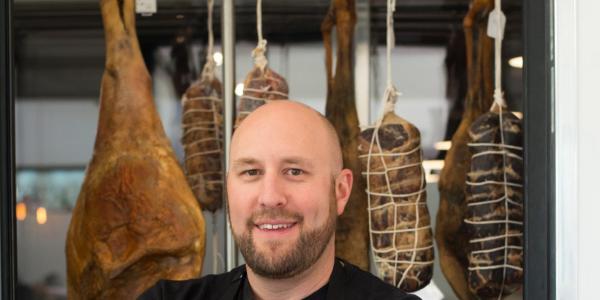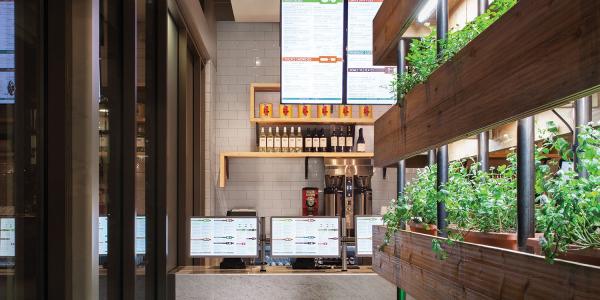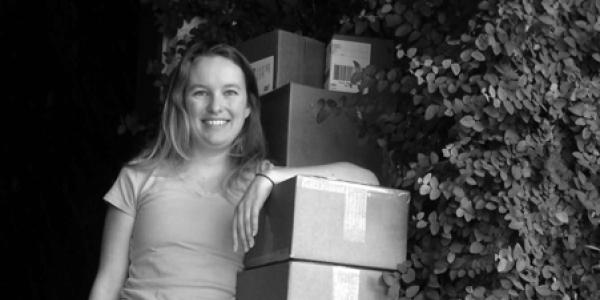
To date, the nonprofit Boulder Food Rescue has delivered more than 2.4 million pounds of soon-to-be wasted food — primarily fruits and vegetables — directly to people's doorsteps.
 To Hayden Dansky (EBio, Phil’11), it didn’t make sense: Every year, nearly 40 percent of all food grown in the United States was ending up in landfills as tens of millions of U.S. residents lived in food-insecure households.
To Hayden Dansky (EBio, Phil’11), it didn’t make sense: Every year, nearly 40 percent of all food grown in the United States was ending up in landfills as tens of millions of U.S. residents lived in food-insecure households.
“I wanted to do something about that,” said Dansky, who grew up in North Carolina and moved to Boulder in 2006 to attend CU.
Today Dansky, 30, is executive director and one of five co-founder of Boulder Food Rescue — the first in a series of affiliated food rescue organizations that have sprouted in cities around the country.
The organization’s innovative model takes food accessibility to a new level by transporting soon-to-be wasted food directly from local grocery stores straight to doorsteps. With the help of hundreds of volunteers and BFR’s eight-person staff, food is picked up from Boulder-area grocery stores 15 times a day, every day of the week, entirely by bicycle.
To date, BFR has delivered more than 2.4 million pounds of food — primarily fruits and vegetables — to food distribution centers and pantries, as well as to low-income housing sites, daycares, elderly homes and preschools. By providing access to food in places where people already gather, the organization removes barriers to access, such as transportation, time restrictions and stigma.
The organization took shape in 2011 after Hayden saw research by Caleb Phillips (MCompSci; PhD’12) that concluded enough food is wasted daily in Boulder and Broomfield Counties to feed everyone there who goes hungry
The organization took shape in 2011 when Hayden joined forces with founding members Caleb Phillips (PhDCompSci’12) and Becky Higbee, who, with the help of computer science professor Rhonda Hoeningman had conducted a study at CU that concluded enough food is wasted daily in Boulder and Broomfield Counties to feed everyone there who goes hungry.
In partnership with the national food access organization Food Not Bombs, Hayden, Caleb and three others started hosting a free weekly meal outside the Boulder Public Library using food donated by Ideal Market in North Boulder. They didn’t know what to expect for the first meal, and brought enough food to fill 30 stomachs.
Hundreds of hungry people showed up.
"I would hear all the time that the meal in the park was the healthiest meal folks ate all week. So we decided to do more," said Dansky, executive director since 2012.
In addition to the weekly meals, the group formed BFR, which today shares its knowledge, resources and real-time data through a website and the Food Rescue Alliance — a BFR-led peer-learning network that connects food rescue orga nizations across the country. Food rescues can now be found in Denver, Colorado Springs, Fort Collins, Seattle, Jackson Hole, Charlotte and Chicago.
“A lot has been done, but there’s still lots to do,” said Dansky, who also performs spoken-word poetry around Colorado. “I continue to question why nonprofits are run a certain way and why food systems run in certain ways as well. When I started working on this project, I didn’t know how to do anything. That’s both the hardest and my favorite part. I get to learn every day.”
A central part of BFR’s mission is listening to and giving a voice to the people the organization serves, said Dansky.
“You don’t know what people need until you really ask. Food is this tool that enables us to have these relationships in order to understand what people really want, and what they really need,” said Dansky. “Food connects people.”
Photos courtesy of Boulder Food Rescue





